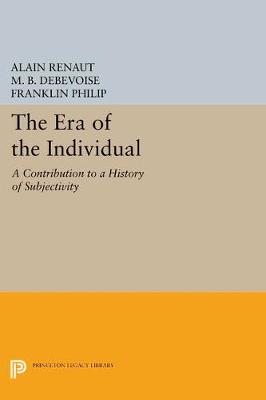Princeton Legacy Library
1 total work
With the publication of "French Philosophy of the Sixties" in 1985, Alain Renaut and Luc Ferry launced their critique against such canonical figures as Foucault, Derrida and Lacan, bringing under rigorous scrutiny the entirepost-structuralist project that had dominated Western intellectual life for over two decades. Their goal was to defend the accomplishments of liberal democracy, particularly in terms of basic human rights, and to trace the reigning philosopher's distrust of liberalism to an "antihumanism" inherited mainly from Heidegger. This text explores the most salient feature of post-structuralism - the elimination of the human subject. At the root of this thinking lies the belief that humans cannot know or control their basic natures, a premise that led to Heidegger's distrust of an individualistic, capitalist modern society. Whilst acknowledging some of Heidegger's misgivings towards modernity as legitimate, Renaut argues that it is nevertheless wrong to equate modernity with the triumph of individualism.
In this book he distinguishes between individualism and subjectivity and, by offering a history of the two, aims to redirect the course of current thinking away from potentially dangerous reductionist views of humanity. Renaut argues that modern philosophy contains within itself two opposed ways of conceiving the human person. The first, which has its roots in Descartes and Kant, views humans as subjects capable of arriving at universal moral judgements. The second, stemming from Leibniz, Hegel and Nietzsche, presents human beings as independent individuals sharing nothing with others. In a recounting of this philosophical tradition, Renaut shows the resonances of these traditions in more recent philosophers, such as Heidegger, and in the social anthropology of Louis Dumont.
In this book he distinguishes between individualism and subjectivity and, by offering a history of the two, aims to redirect the course of current thinking away from potentially dangerous reductionist views of humanity. Renaut argues that modern philosophy contains within itself two opposed ways of conceiving the human person. The first, which has its roots in Descartes and Kant, views humans as subjects capable of arriving at universal moral judgements. The second, stemming from Leibniz, Hegel and Nietzsche, presents human beings as independent individuals sharing nothing with others. In a recounting of this philosophical tradition, Renaut shows the resonances of these traditions in more recent philosophers, such as Heidegger, and in the social anthropology of Louis Dumont.
